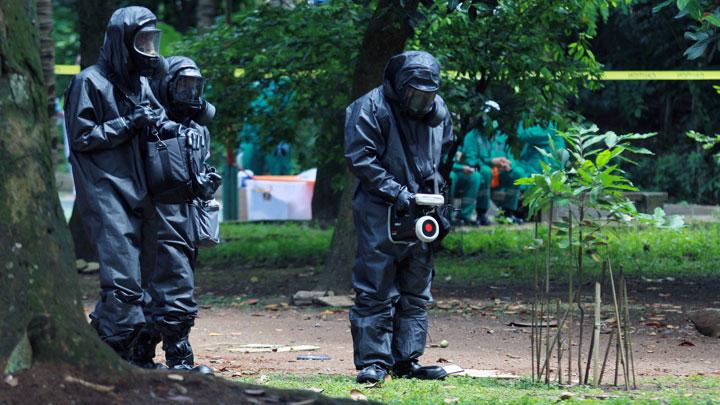
TEMPO.CO, Jakarta -THE police must find those responsible for disposing of cesium-137 – a radioactive material – on a vacant lot at the Batan Indah Residential Complex in Serpong, South Tangerang Banten, and impose serious sanctions. The perpetrators’ action of polluting the environment with toxic and hazardous waste may harm humans as well as other living things. As detected by the Nuclear Energy Regulatory Agency (Bapeten), radiation exposure at the end of January was 1,818 times above the safe threshold.
Unfortunately, Law No. 10/1996 on nuclear energy offer sanctions that are too weak. Violators of radioactive management regulations are only subject to a maximum fine of Rp100 million. For a deterrent effect, the police must apply Law No. 32/2009 on environmental protection and management. Article 103 of this law states that a toxic and hazardous (B3) waste producer that fails to properly manage its waste is subject to a prison sentence of at least one year and a minimum fine of Rp1 billion.
The police's move to include Bapeten in investigating the origin of the nuclear waste is already an appropriate one. Bapeten, as the country’s nuclear monitoring institution, must posses data on the producers, users and processors of radioactive materials. It was also right to involve the National Nuclear Energy Agency (Batan) as it has expert staff and a proper laboratory. Every radioactive material has a unique identity, allowing its producer and users to be tracked.
Although the nuclear waste was not found to have come from Batan’s nuclear reactor, Bapeten must not stop there. The institution must inspect Batan’s Center for Radioactive Waste Technology as the only institution with the authority to process nuclear waste in this country. Bapeten must discover how waste that should have been processed and stored ended up in a residential area. Bapeten must also investigate the institution’s staff because every delivery and transportation of radioactive waste is performed with the permission of Batan’s chief.
The radioactive waste in Serpong was found by accident. The discovery occurred when Bapeten was testing its radiation detector on January 30 and 31. Regrettably, the discovery was not immediately followed up. Efforts to decontaminate and clean the area exposed to radiation were only conducted 11 days later.
Radiation level at the location during the discovery reached 200 microsieverts per hour while the safe threshold according to Bapeten Chief Regulation No. 4/2013 is 0.11 microsieverts per hour or 1 millisieverts per year. When discovered, the cesium-137 waste was in the form of fine fragments mixed in with soil. It is not yet known how much waste was initially disposed of there and how long it had been there.
Discovery of the radioactive waste in Serpong may cause the public to be skeptical of the use of nuclear energy. Nuclear power plants, such as found in Japan and Russia, demand great discipline from their managements. Without such discipline, it appears the dream for nuclear power plants in Indonesia must be buried deep.
Read the Complete Story in this Week's Edition of Tempo English Magazine























